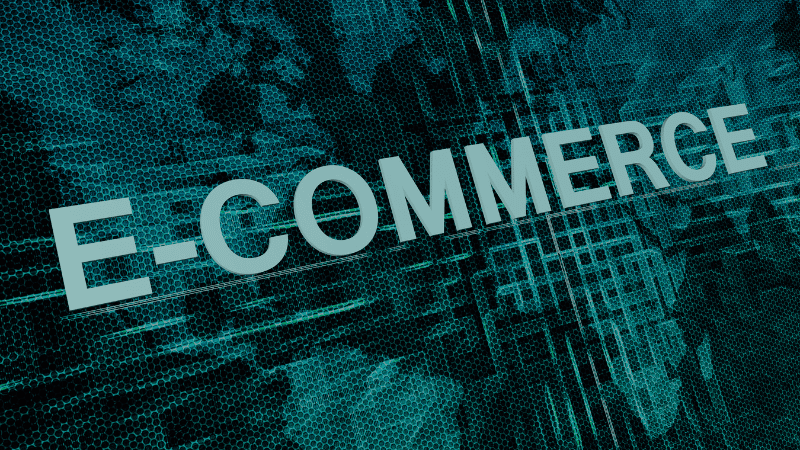Categories
Ecommerce Finance | 8 Options Compared

Ecommerce is big business in the UK. With online and mobile transactions taking up more than a third of the overall retail sales in the country and growing.
Ever since the COVID pandemic, e-commerce has become the go-to method of buying goods for most UK households, so it’s no wonder that businesses in the sector are experiencing continuous growth and investor interest.
This boom means that there are even more funding options available for e-commerce companies than before.
See your E-Commerce Funding Options
At Clifton Private Finance, our experts are here to help your e-commerce business find the finance it needs to stay at the top of this lucrative and competitive market.
Contents
What is Ecommerce Finance?
Why Look to ECommerce Finance?
8 Ecommerce Finance Options
Financing Innovations in the Ecommerce Industry
Things to Consider When Selecting ECommerce Finance
Ecommerce Finance with Clifton Private Finance
What is Ecommerce Finance?
Ecommerce finance covers a range of financial products and services that are designed to support online businesses, from business loans secured against existing stock and assets, to cash flow finance raised against your online payments, the options are diverse.
With different products each offering a unique range of benefits, as well as disadvantages, there are solutions suitable for every business.
However, navigating the ecommerce financial landscape to discover the right products can be time-consuming, confusing, and fraught with potential pitfalls.

Why Look to ECommerce Finance?
Part of obtaining the right finance is understanding why you want it.
Securing capital with no comprehensive plan for its use is not only difficult, it is also irresponsible and can lead to significant problems later on.
It’s important that you clearly define why you want ecommerce finance and what it will be used for.
Typical requirements in the ecommerce industry include:
- Stock and Inventory - Building up stock to sell online will enable you to offer a wider range of products to your customers, as well as improve the quality of those products you sell. Investing in inventory is a key part of many e-commerce businesses.
- Marketing - Ecommerce businesses are always in competition, and becoming a familiar name in the sector who customers buy from requires constant marketing. Ecommerce business rely on multiple aspects of online marketing, from social media to email campaigns and pay-per-click advertising. Managing and paying for an ongoing marketing budget often requires external funding.
- User experience and platform - Developing the right platform for your business that provides the clean user experience it needs to survive takes investment. Early capital-based ecommerce funding can provide the money needed to set up and maintain a strong online presence.
- Staffing and overheads - Many ecommerce businesses are able to run with minimal staff and ongoing overheads, but these are never zero. Cash flow funding may be required to see the company through difficult periods, ensuring it meets its obligations to employees and suppliers each month.
- Innovation and development - If your ecommerce business stands at the cutting edge of services, then continuous research and development is likely part of your business plan. With grants available to help offset the cost of R&D, it is always worth considering what financial support will suit your business.
See the latest market news below.
2025 Business Finance Market Update
In the past year, business finance saw significant growth, perhaps surprisingly driven by challenger lenders and alternative finance providers. Many of these lenders reached their largest milestones in 2024, primarily through supporting SMEs that may have struggled to access traditional funding elsewhere.
Businesses are continuing to face significant economic challenges carried over from 2023. High inflation, supply chain disruptions, and geopolitical tensions persist, which have complicated financial planning and made it difficult for businesses to acquire funding.
But the Bank of England has cut its base interest rate for the first time in 4 years, signalling a cautious shift toward economic stabilisation after years of inflationary pressure. Further cuts are anticipated, and businesses can expect a flurry of spending in the coming months.
As well as this, a number of banks and large firms seem to be racing to the finish line to implement generative AI and new technology that could streamline business and boost profits. Enhancing tech in banking looks like a win-win for lenders and borrowers, offering more personalised financial solutions and a quicker, more secure process.
In the tech industry, investments in AI are reshaping business. Tech giants like Alphabet, Amazon, and Microsoft have seen their market values surge, driven by the rush to implement AI.

8 Ecommerce Finance Options
Like any business, ecommerce companies have access to a range of traditional financing options.
These include bank loans, applying for government-supported grants, or seeing external investment.
Beyond this, however, lies a subset of financial products that have been developed specifically with the needs of ecommerce businesses in mind. The options for ecommerce businesses are impressive.

1. Term-Based Loans
Term loans are those traditional-style loans that are familiar to most. Capital is borrowed from a bank or other lending institution and is repaid with interest over a set period.
See your E-Commerce Funding Options
Unsecured business Loans
An unsecured business loan is provided based primarily on the credit history of the business. In many cases, especially if your ecommerce business is young or a startup, a director’s guarantee may be required.
This guarantee means that should the company fail to repay the loan or enter administration, the directors are personally liable for the balance of the loan.
Unsecured loans are a great early option for ecommerce companies, providing the startup capital needed to get the business off the ground and trading. Government schemes, such as the government startup loan scheme can help startup businesses secure the loans they need.
Secured (Asset-Based) Loans
An asset-based loan is one where collateral is provided in terms of asset linked to the loan. In these situations, should the business fail to make repayments, the lender is able to repossess the asset, selling it on to cover the debt.
Asset-based loans are an excellent way to secure funding at lower interest rates and when business credit history is not well established.
While many Ecommerce businesses typically lack traditional large assets used to secure asset-based loans, such as plant machinery or vehicles, they often have other relevant assets, such as inventory and stock, that can be leveraged successfully.

2. Traditional Lines of Credit
A line of credit, or revolving credit facility, is where a lender provides an ongoing level of credit that can be ‘dipped’ in and out of as the business needs, with interest being paid only on the current level of debt.
Ecommerce businesses in the UK will be able to easily secure the two common revolving credit facilities - overdrafts and company credit cards.
Both overdrafts and credit cards can be quickly misused, however, with businesses leaning on them too much and finding themselves paying substantial amounts of interest each month in a constant spiral.
For this reason, we recommend that lines of credit are always used only as short-term financing, with loans and other products more suitable for mid-term to long-term finance.
Despite this downside, traditional lines of credit provide ecommerce businesses the additional financial power that is needed to take opportunities as they come up and smooth cash flow issues during slower periods.

3. Asset Finance
Asset finance provides funding options to secure business-critical assets. Often this is used to provide companies with machinery, vehicles, and equipment so many lighter-weight ecommerce businesses have little need to utilise asset finance.
However, one area where asset finance does offer a substantial opportunity for e-commerce businesses is with technology and software. Specialist asset finance can be obtained to give your business access to the latest computing equipment and essential software.
It is worth speaking to an asset finance advisor to see how this specialist business finance can help your ecommerce company.


4. Revenue-Based Financing
One avenue of financing that is specialised to suit ecommerce businesses is that of revenue-based financing (RBF). This is a system that enables businesses to raise capital in exchange for a percentage of future revenue.
Revenue-based financing works by obtaining a lump sum of capital in return for an agreement that a percentage of future sales is paid to the finance provider until the agreed sum is repaid.
As repayments will fluctuate based on income, there is no fixed term to the loan, but instead it comes to an end once the agreed figure is reached, typically estimated to be between one and five years from the initial investment.
RBF does not require the sale of shares, nor is interest generated on the loan over time. It is particularly suitable for businesses with strong profit margins and a well-forecasted business model that can reliably predict future income - for this reason, it is of particular interest to e-commerce businesses looking to grow their companies through purchasing stock for sale.

5. Cash Flow Short-Term Finance Solutions
One of the problems that ecommerce companies face is that of cash flow while the business stabilises and grows.
With money ‘on the horizon’, it can be extremely frustrating to have to struggle to meet current obligations. Cash flow financing can help bridge the gap in those difficult months, providing a way to access known future revenue early.
For B2C customers, such as ecommerce stores, merchant cash advance offers an ideal solution.
Future card transactions are leveraged to support a short term loan that’s paid back as a percentage of future takings.
For ecommerce businesses that work with larger and less-frequent invoices, invoice factoring and invoice discounting can provide similar support, freeing the money tied up in accounts payable and giving the business the capital it needs today.

6. Grants
The UK government is keen to support businesses in the UK and offers a range of grants and support for businesses, especially those who are engaged in innovation and research.
Additionally, various organisations and charities provide grants on both a national and local level to businesses that meet their criteria and spheres of interest.
See your E-Commerce Funding Options

7. Equity Finance
Many ecommerce businesses look to equity financing to help fund strong business ideas. Many investors are keen to support ecommerce businesses, particularly due to the strength and growth that’s prevalent in the sector.
Entrepreneurs who wish to maintain complete control over the business and its direction may avoid equity financing and remain in the loan funding arena for this reason.
However, dilutive funding is not all downside, as investment capital will often come hand-in-hand with the direct interest, experience, and resources of the investors. Access to a wider network of specialists in areas such as branding, marketing, finance, sales and more, can be extremely helpful to a growing ecommerce business.

8. Crowdfunding
A subset of equity funding, crowdfunding platforms provide ecommerce businesses an opportunity to raise funds from a large pool of investors while also exciting potential customers and developing brand awareness - often before the business launches!
Crowdfunding success hinges on effective promotion, however, and is best suited for those with a strong understanding of marketing and a compelling, often unique, product.
Financing Innovations in the Ecommerce Industry
The changes brought about to financial products in the past decade due to the expansion of the ecommerce industry mean that several innovative options exist for ecommerce companies to utilise that were unavailable even as recently as ten years ago.
These include:
- Buy Now Pay Later (BNPL) - BNPL for businesses offer e-commerce companies the ability to provide customers with easy instalment payment options, spreading the cost of products and services. Ultimately, this increases sales and customer loyalty without placing any strain on the business.
- Embedded Finance - By integrating several financial services such as lending and payment solutions into their ecommerce platforms, providers can now offer a comprehensive ecommerce service that is both a platform for the business and a financial solution.
- Sustainable Finance - With an eye to the future, the e-commerce financing industry has a focus on sustainable and ethical finance solutions.
This incudes green finance initiatives that prioritise funding businesses that have sustainability at their core.
Things to Consider When Selecting ECommerce Finance
Choosing the right financing for your business can be complex, with multiple factors to take into account.
At Clifton Private Finance, we have the experience to support you in your choices, ensuring you always make informed decisions at each stage of the business funding journey.
The following are some key points to consider when determining the funding for your ecommerce business:
- Business size and stage - Startups have particular options available to them, such as government-backed loan schemes or crowdfunding. Later stage ecommerce businesses looking to grow will be more able to acquire both secured and unsecured loans, as well as leverage larger revenue-based financing.
- Funding needs - Many short-term options, such as merchant cash advance or utilising a bank overdraft, are good for seeing the business through a seasonal downturn but are not suitable for long term needs or growth strategies.
Conversely, asset-based finance provides an excellent way to generate capital for expansion but is poorly placed to cover immediate cash flow requirements. - Repayment structure - With multiple options available, it is essential to properly understand and plan any repayment obligations. Similarly, dilutive funding options, such as angel investment, must have the business impact thoroughly explored before finalising agreements.
- Eligibility - Some funding options may simply be unsuitable for your venture. This is particularly relevant when seeking grant funding, which will come with specific eligibility criteria. Make sure you consider any requirements of the capital provider before moving to an application stage.
- Documentation - It is vital to have your business documentation in a ready-to-go state. Comprehensive financial analysis and thorough business planning are essential to obtain funding in most business marketplaces. Forecasting is of particular relevance for e-commerce finance as specialist funding, such as revenue-based funding is provided based on these figures. Maintain an up-to-date business plan that includes current financial status and forecasts.
- Credit history - Business credit rating is a significant factor when obtaining funding. It is important to keep a strong credit score to get the best rates and most suitable deals for your business when it comes to finding ecommerce funding solutions.
Ecommerce Finance with Clifton Private Finance
At Clifton Private Finance, we have a specialist team of ecommerce experts ready to help you secure the funding that will boost your business.
With access to the wide marketplace of UK funding partners, we can advise and find the deals that are perfect for you. Contact us today for expert advice.











